As part of our series of interviews with BALIHT’s partners, Javier Peña and Dr. Vicente Vert from AIMPLAS tell us more about their role in the project.
What is the role of your team in the implementation of BALIHT?
Javier Peña: AIMPLAS is leading the overall coordination of BALIHT project, from both the managerial and technical sides. I am in charge of the project management, responsible of the reporting to the European Commission, the management of resources and risk assessment, and the smooth and effective execution of the tasks agreed by the consortium. In addition, my colleague Dr. Vicente Vert provides his experience on the technical issues concerning the development and upscaling of some of the components of the organic redox flow battery developed in the project, such as the plastic frames and plastic flexible tanks. Furthermore, Ms. Marta Pérez and Ms. Amparo Carles provide technical and managerial support to complete the coordination of the BALIHT project.
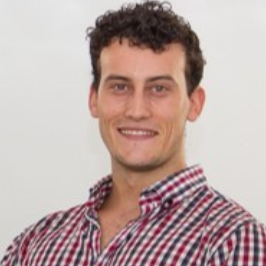
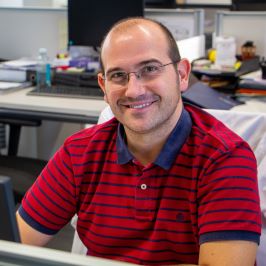
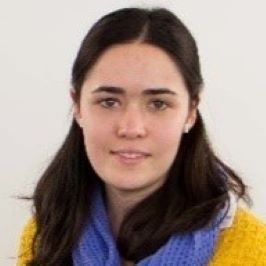
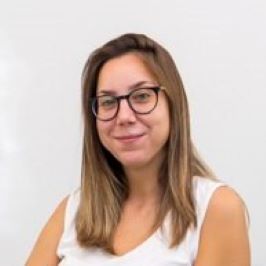
From left to right: Javier Peña, Vicente Vert, Marta Pérez, Amparo Carles
What have you achieved so far in the framework of BALIHT?
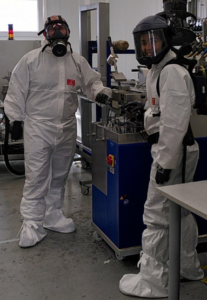 Javier Peña: After 18 months of execution, BALIHT is half-way finished. The main components to be assembled in the new redox-flow battery based on novel and sustainable organic electrolytes are fully defined and are currently being developed, tested and validated by all the partners involved in technical activities. Moreover, the environmental, social and economic impacts of the battery and its life cycle are being assessed.
Javier Peña: After 18 months of execution, BALIHT is half-way finished. The main components to be assembled in the new redox-flow battery based on novel and sustainable organic electrolytes are fully defined and are currently being developed, tested and validated by all the partners involved in technical activities. Moreover, the environmental, social and economic impacts of the battery and its life cycle are being assessed.
Dr. Vicente Vert: Regarding AIMPLAS’ work on the technical aspect of the project, our main activities and achievements were related to the design and development of the different battery components. Up until now, AIMPLAS has been working on the development of the most optimal formulation and configuration for the materials to be used in the production of the frames, bipolar electrodes and electrolyte flexible tanks for the battery. To enhance the thermal stability of the plastic frames, reference polymeric material was mixed with selected additives to increase the heat deflection temperature (HDT) and crystallinity of the new compound. As for the flexible tanks aimed to contain the novel electrolytes, our studies were focusing on assessing the chemical stability against this new electrolyte at higher temperatures. Besides, some coatings have been applied for ensuring a proper omniphobicity of the material against these new electrolytes and for creating printed sensors.
Picture of AIMPLAS’ team running tests in their laboratory for BALIHT’s research purposes.
What will be the next main steps for you in the coming months?
Dr. Vicente Vert: BALIHT is entering the most challenging but exciting phase: the integration, installation and validation of the final organic redox-flow battery. The integration of the different tailored and optimised components in a single functional battery to be tested under real conditions at the Ibiza’s harbour (Spain) will be the key achievement of our project. In the meantime, AIMPLAS’ main activities will focus on supplying the materials needed to produce the battery frames and electrolyte tanks at pilot scale. In addition, we will start working on the valorisation of the different battery components once they reach their end-of-life.
Javier Peña: Beyond these actions, AIMPLAS will keep ensuring the overall management of the project and the coordination of the activities related to the exploitation and dissemination, the innovation management, the communication and involvement in international initiatives such as FLORES. This will be done in cooperation with all the leading partners on these aspects of the project, as it was already the case in the first 18 months of the project. We are delighted to see that the participation among the partners remains as good as at the beginning, or even better.
More about AIMPLAS:
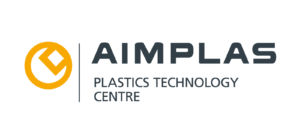 AIMPLAS – Plastics Technology Centre, created in 1990 and located in Valencia, is a private, non-profit association with more than 700 associated companies and +180 highly skilled professionals. AIMPLAS’ fields of work are related to technological research and development on thermoplastic and thermosetting materials up to TRL8 (Technology Readiness Level 8). AIMPLAS has an extensive experience in various fields such as organic chemistry, recycling, synthesis of biopolymers and renewable source materials, high performance coatings, or compounding of plastics with advanced properties for thermal, conducting, and fire resistance. Since 2000, AIMPLAS has participated in more than 100 EU-funded projects, coordinating several of them.
AIMPLAS – Plastics Technology Centre, created in 1990 and located in Valencia, is a private, non-profit association with more than 700 associated companies and +180 highly skilled professionals. AIMPLAS’ fields of work are related to technological research and development on thermoplastic and thermosetting materials up to TRL8 (Technology Readiness Level 8). AIMPLAS has an extensive experience in various fields such as organic chemistry, recycling, synthesis of biopolymers and renewable source materials, high performance coatings, or compounding of plastics with advanced properties for thermal, conducting, and fire resistance. Since 2000, AIMPLAS has participated in more than 100 EU-funded projects, coordinating several of them.

